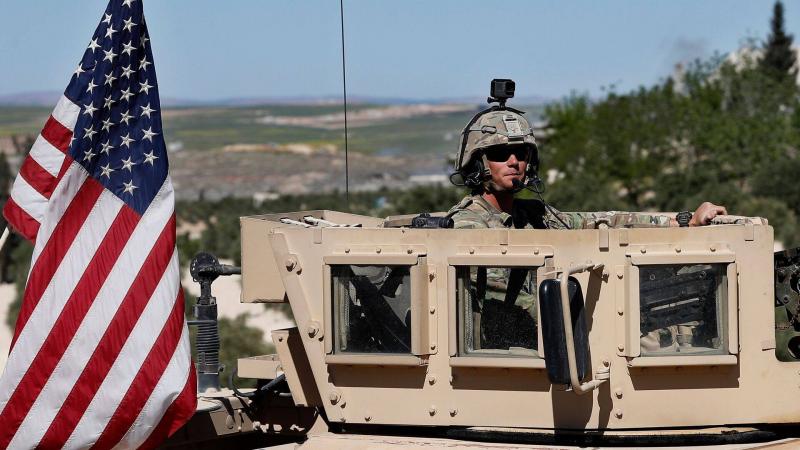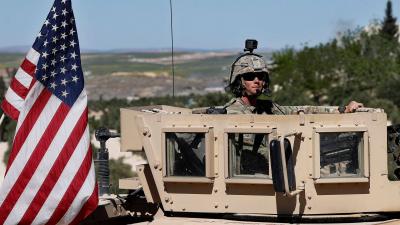The restoration of Syria's seat in the Arab League in 2023, after a 12-year hiatus, did not change the economic and security realities in the country, which has become a battlefield for U.S.-Iranian rivalry. It did not lead to the lifting of sanctions on Damascus, which continues to suffer from an economic and financial crisis that has caused the currency's value to collapse by 100% compared to 2022. This crisis prompted a new challenge for the authorities, represented by ongoing protests in the city of Sweida since August, occurring weekly.
The tragedy of the earthquake that struck Turkey and northern Syria in February 2023, resulting in 23,000 fatalities and widespread destruction in both government and opposition-controlled areas, served as a gateway for significant Arab aid to Syria. It also marked a shift in Arab engagement, culminating in Syria’s reinstatement in the Arab League. Syrian President Bashar al-Assad attended the summit held in Jeddah, Saudi Arabia, hoping it would mark "the beginning of a new phase of Arab cooperation for peace in our region, and development and prosperity instead of war and destruction," considering it a "historic opportunity to rearrange our affairs with minimal foreign interference."
However, the conditions for a resolution, expressed through a "step-by-step" policy to address contentious issues, did not lead to changes that align with the Arab vision articulated in the final resolutions. Arab leaders reiterated their agreement to "enhance joint Arab cooperation to address the effects and repercussions related to refugees, terrorism, and drug trafficking," and emphasized the necessity of taking practical and effective steps towards resolving the Syrian crisis. In reality, there was no change regarding the refugee issue, nor had drug trafficking from Syria to Arab countries through Jordan ceased, despite a July 2023 security meeting between Jordanian and Syrian officials aimed at combating border smuggling. The country witnessed dozens of smuggling attempts, including four incidents over four consecutive days in December. Jordanian officials stated that smuggling efforts had become "organized," employing drones and protected by armed groups, prompting Jordan to utilize air force capabilities multiple times to thwart these activities.
In terms of security, no significant changes occurred, as ISIS maintained its activity, launching attacks against Syrian government forces and civilians, particularly targeting truffle hunters in February and April. There were also exchanges of strikes between government forces and opposition factions in the north, culminating in a drone attack that targeted a graduation ceremony for military academy officers in Homs on October 5, resulting in at least 100 fatalities and hundreds of injuries, according to the Syrian Observatory for Human Rights. Simultaneously, no changes occurred regarding the unification of authority and the withdrawal of foreign forces, which have established permanent bases and controlled clear territories since 2020 at least. Hezbollah and Iran-linked factions preserved their presence, and Israeli strikes intensified in Syria in 2023, peaking during the Gaza war, with Israeli attacks rendering the airports of Damascus and Aleppo out of service for two months.
Thus, the Gaza war turned Syria into a proxy battleground between Iran and the United States directly. Militias connected to Iran in eastern and northeastern Syria repeatedly claimed responsibility for attacks on U.S. bases in eastern Syria, while U.S. forces retaliated against targets belonging to these factions, including strikes that the U.S. Department of Defense indicated targeted the Iranian Revolutionary Guard.
This security reality, coupled with stagnation in the political solution dossier, reflected adversely on the country’s economic situation, evidenced by a decline in currency value by up to 100% over 11 months. The exchange rate of the Syrian pound registered around 6,600 pounds to the dollar in January, rising to 12,600 pounds by December, and briefly dipped in the black market to about 14,000 pounds in October, leading the government to intervene through the central bank to attempt to stabilize the exchange rate.
Rapidly, the deteriorating living conditions and economic crisis posed a new challenge as protests reemerged starting August 10, initially concentrated in Sweida from August 17, evolving into a broader movement. In late August, protests in Sweida notably included the raising of Syrian revolution flags for the first time, expanding to Dara, with demonstrators in both provinces demanding the regime's ouster, the release of detainees, and the implementation of UN Resolution 2254. The protests received support from areas in Deir ez-Zor (east), as well as rural Aleppo and Idlib (north), with limited movements also appearing in regime-controlled areas in the capital Damascus and Tartus in the west.
Regarding the Syrian presidency, a substantial shift occurred according to Asharq Al-Awsat, as Assad significantly expanded his range of foreign trips. After attending the Jeddah summit, he undertook an official visit to the United Arab Emirates and another to Moscow, where he met with Russian President Vladimir Putin. He also made a formal visit to Beijing on September 22, where he met with Chinese President Xi Jinping and signed a strategic partnership with China in infrastructure as part of the Chinese "Belt and Road" initiative.




